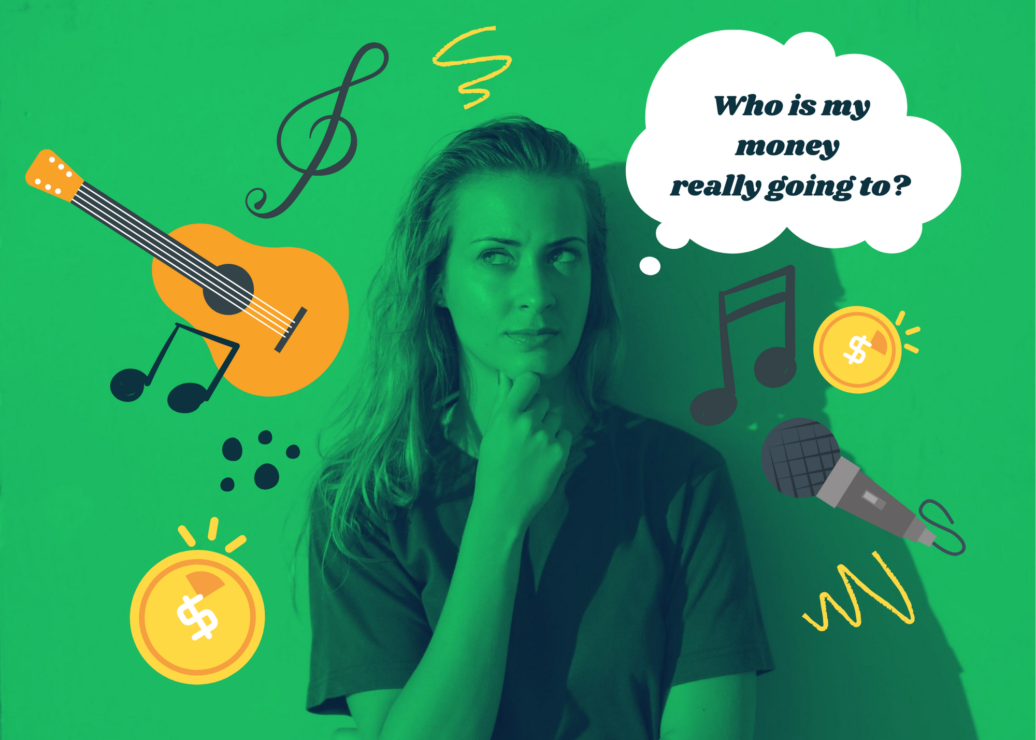Spotify has lured us into a false sense of benevolence

On July 31, the United States government’s Federal Pandemic Unemployment Compensation for working Americans expired, leaving millions of American freelance performing artists — such as musicians, actors, and dancers — high and dry, and unable to work during the COVID-19 pandemic.
As performance venues were the first businesses to close in response to safety measures and will be the last to reopen, the music industry is suffering even more than usual, with many performers having barely hung on financially even before mass closures swept the world’s venues.
Performing artists also struggle to find stable employment elsewhere, with some having little work experience or skills outside their niche industries. To build any success in fields, such as music or acting, requires spending a lot of time not working at conventional jobs. This can be to train, network, or take as many opportunities for work as one can, no matter how short or low-paying, with the hope of eventually finding some stability.
Recently, Prime Minister Justin Trudeau announced that the Canada Emergency Response Benefit (CERB) and Canada Emergency Student Benefit would soon see their own expiration date, and that dependent Canadians need to prepare to shift to Employment Insurance (EI) for income. The government also has introduced a benefit package for contract workers who were depending on CERB and whose jobs are not suitable for EI. While Canadian freelance artists will likely not struggle as much as their American counterparts from the financial aftermath of COVID-19, freelancers have just as hard a time as anyone with keeping themselves afloat even in a disease-free society.
Which brings me to streaming services such as Spotify.
Unfortunately, for any artist who isn’t Drake or Taylor Swift, those royalties often don’t even add up to one hour of minimum wage
In the past 10 years, the popularity of streaming services as a primary form of music consumption completely surpassed that of digital music stores, LPs, and CDs. These subscription-based services offer access to the vast majority of recorded music for a fee of what is usually less than $10 per month. Billions of users pay for conveniences such as being able to organize and share playlists, and perhaps even for the idea that they are paying for music instead of stealing it through piracy and torrent services.
However, the idea of financially supporting artists through streaming is a complete fallacy. The percentages of royalties that each streaming service pays its artists has been publicly disclosed for years, with TIDAL and Napster being the most expensive and boasting the highest-paying royalties, and Spotify having the most popular service, the cheapest one, and among the lowest-paying royalties.
The percentages are all infinitesimal — each one takes three to five decimal places. Despite this being a microscopic amount of money to “pay” for a song, users continue to subscribe to the services and imagine that the artists somehow collect enough money, even if that cheque is a few dollars per fiscal quarter. Unfortunately, for any artist who isn’t Drake or Taylor Swift, those royalties often don’t even add up to one hour of minimum wage, and therefore using Spotify to listen to their music costs you money and doesn’t pay the artist more significantly than piracy does. I realize that most users of Spotify are currently just crying in the shower to Folklore on repeat, but the fact is that gaps in the system like these are why Swift herself has had a complicated (even by her standards) relationship with Spotify.
Recently, Spotify founder and CEO Daniel Ek came under fire for a comment about how artists who are struggling need to increase their productivity levels to get noticed. With all due respect, I don’t think that millions of bands are going to become more successful if they all put out an album once a year instead of taking the time to write a good one every four years. Ek — who has a net worth of $4 billion USD — is a businessman first and foremost, a “disruptor” attempting to get his grubby hands all over an art world that is already polluted enough by the recording industry. A quick Google search reveals that he is an accomplished amateur musician who spent some time in a tour bus as a young man, but gave it up after a year, citing the difficulty of finding stability and success. I find the fact that he can turn around and be this unempathetic to musicians in that boat, who are actually sticking it out, to be deeply disturbing.
If you have any genuine appreciation for the music you listen to, please remember that it is not just a corporate product, and that the person creating it has at least one mouth to feed in their life. Consider this a wake-up call to get off streaming services, or at least supplement them by purchasing someone’s albums and merch that you really like on services such as Bandcamp. Remember, if you’re not paying for it, someone else is down the line.






